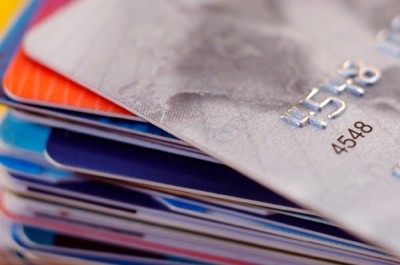It was a recent trip to the bank for a car loan that alerted me to the small things that can largely affect your credit score. I suppose that's how most people learn about their credit: they apply for a loan and learn all too late that small errors can lead to major score reductions. Luckily, my trip was positive, but a routine question brought me to see why people are surprised by their credit scores; we simply don't understand how it works.
There are multiple ways to evaluate a credit score, and the results can vary by more than 50 points. However, the only scoring method that matters is the one that your bank is using. When choosing a bank, ask what method of credit calculation it uses, and don't wait until it's time to apply for a loan to ask how to calculate your score. Also, ask if loan rates are discounted for higher level credit scores-most are. This is important information for future banking. The basic rubric for determining your credit score according to FICO is:
Did you ever look in your "Junk" e-mail folder and see one of your bill statements sitting there? It's already overdue so you let it slide, planning to pick up the tab next month. This can come back to get you the next time you apply for credit. A 30 day late bill pay can lower your credit score as much as 100 points if it's not the first. Depending on how long the late account has been open and how many times you've made late payments, the drop can be minor or devastating. A once and done late payment on an old account won't kill your credit, but it's not something you want to pop on your credit score. The report usually scans two years of past credit.
Surprisingly, a large debt on one old credit account (a credit card you've had for ten years) won't hurt your credit score as much as opening multiple credit cards within 18 months of one another. New credit hurts your score as does the credit request that these lenders ask for upon opening the accounts. Those store cards that offer 15% off the day's purchase if you open a new account can hurt your credit score.
This doesn't mean that you should close your existing accounts. Closing them won't help. Only limiting new cards will help in this area of your score. In fact, at this point it will help to maintain existing accounts to establish mature and available credit.
If you have multiple credit cards, try to use them evenly. Don't run up the bill on one card and leave the others empty. You would think that overall this would even out: five lines of credit are available but only one carries a balance. In fact, this isn't a major area to worry about, but if you're after that perfect 850 score (in opposition to the 300 minimum) try to spread your spending between all five cards. The perfect spending limit on available credit is 30%; don't create balances higher than that on any card.

Add your voice! Click below to comment. ThriftyFun is powered by your wisdom!
Thanks! I came within inches of applying for the amazon.com card that offers rewards just to get the 30 bucks off my next purchase.
Do you know that if you won $100 million in the lottery or inherited $100 million your FICO score wouldn't change one bit? FICO is not the be all end all.
Further to Kelly's advice, I learned that once you begin to pay interest on a credit card (from not paying the full amount), you will continue to be charged interest for every purchase made afterwards until you receive a statement with a zero balance.
I read this in Gail Vaz Oxlade's website.
Add your voice! Click below to comment. ThriftyFun is powered by your wisdom!